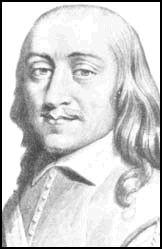Thomas Rainsborough | |
|---|---|
 Thomas Rainsborough | |
| Commander of Parliamentarian navy Captain of Deal Castle | |
| In office September 1647 – May 1648 | |
| Member of Parliament for Droitwich | |
| In office January 1647 – October 1648 | |
| Parliamentarian Governor of Worcester | |
| In office July 1646 – April 1647 | |
| Personal details | |
| Born | 6 July 1610 Wapping, Middlesex, England |
| Died | 29 October 1648 (aged 38) Doncaster, Yorkshire, England |
| Cause of death | Assassinated |
| Resting place | Cemetery attached to St John's Church, Wapping[1] |
| Spouse | Margaret Rainsborough |
| Relations | William Rainsborowe, brother and Ranter |
| Children | William, unnamed daughter |
| Parent | William Rainsborough; |
| Occupation | Soldier, naval officer and radical politician |
| Military service | |
| Allegiance | Parliamentarian |
| Years of service | 1642–1648 |
| Rank | Vice-Admiral; Colonel |
| Battles/wars | |
Thomas Rainsborough, or Rainborowe, 6 July 1610 to 29 October 1648, was an English religious and political radical who served in the Parliamentarian navy and New Model Army during the Wars of the Three Kingdoms. One of the few contemporaries whose personal charisma and popularity rivalled that of Oliver Cromwell, he has also been described as "a soldier of impressive professional competence and peerless courage".[2]
He is now most famous for his participation in the 1647 Putney Debates, when he argued "the poorest hee ... in England hath a life to live, as the greatest hee."
- ^ "Plaque: Thomas Rainsborough". London Remembers. Retrieved 27 September 2022.
- ^ Gentles 2004.